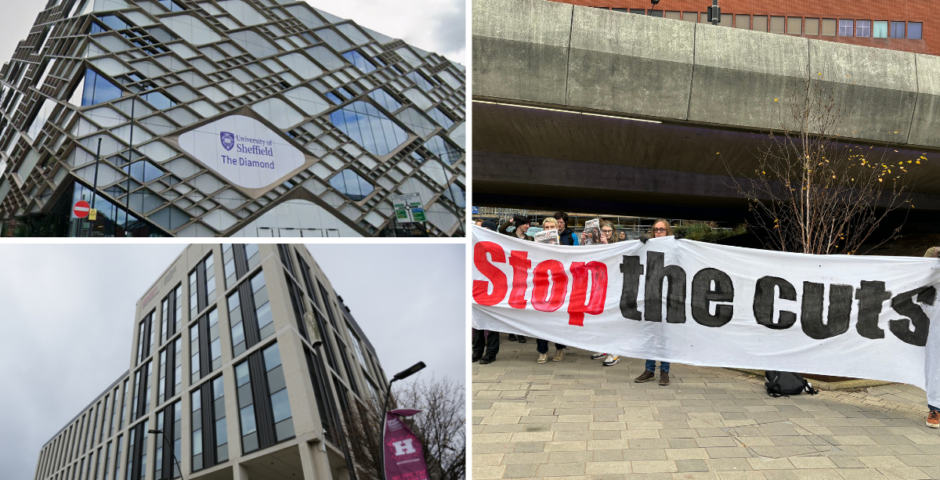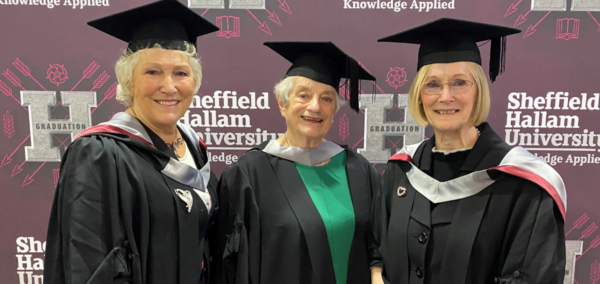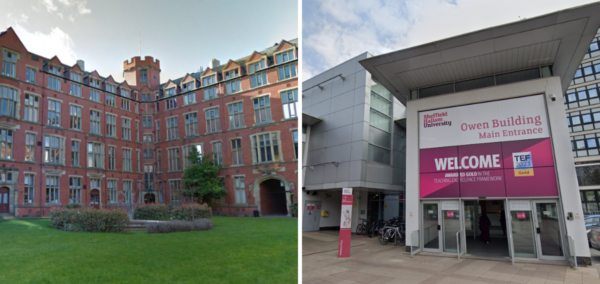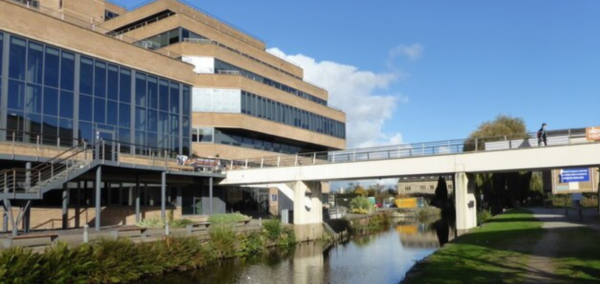
Sheffield anti-cuts group advises students on claiming compensation over strikes
Strikes are currently ongoing at both universities
Sheffield’s Anti-Cuts Coalition is producing a step-by-step guide on how students could claim financial compensation from the universities if they miss learning due to the strike action.
It is based on advice from the Office of the Independent Adjudicator (OIA), the public body that handles student complaints.
University and College Union (UCU) members at the University of Sheffield and Sheffield Hallam University are currently striking over potential cuts – which the coalition argues are unnecessary, damaging and already hurting students’ education. They also believe supporting these strikes and claiming compensation go hand in hand.
Speaking to The Sheffield Tab, a spokesperson for the coalition said: “We’re doing this because we believe the cuts being pushed by the university management are ruthless and completely unnecessary, and that the strike action taken by staff in UCU is justified to stop these cuts.”
Under the University of Sheffield’s complaints process, students can make a claim if their learning has been disrupted by the strike action. This includes scheduled teaching being cancelled and no adequate recovery plan being offered, when there was a recovery plan but students were not properly informed, when their plan is insufficient, or when the plan fails to accommodate students’ additional support needs – for example, those with learning support requirements.
The spokesperson added: “The university still gets student fees no matter how much teaching is disrupted. Mass claims are a way to put the university under the same pressure as other industries.”
Eligible compensation claims are calculated as half of the value of teaching hours missed. The total value of a singular teaching hour equates to the annual tuition fee divided by the number of teaching hours expected.
The coalition also reaffirmed that while strikes cause short-term disruption, it believes the cuts could cause far worse damage.
“If the UCU wins, students win,” the spokesperson said. “We get a university where staff are treated fairly and have manageable workloads, and where academics don’t fear for their jobs term to term.”
The compensation guide for strikes will be posted soon on Instagram, @anticutssheffield, with Sheffield students being encouraged to join picket lines and avoid crossing them during strike days.
In response, a University of Sheffield spokesperson said: “We expect the vast majority of our students to be unaffected by industrial action and will continue to do everything we can to minimise any impact. Our first priority will be to replace any learning that may be lost, in line with guidance from the Office for Students.”
They added the university had hoped to avoid industrial action after regular meetings with Sheffield UCU, adding they remain committed to making no compulsory redundancies before 31 December 2025 and wherever possible in the future.
The spokesperson continued: “The sector continues to face significant uncertainty and we therefore have a responsibility to ensure we remain sustainable and aligned with future needs, while safeguarding our world-class teaching and research.”
A spokesperson for Sheffield Hallam University said they are “disappointed that UCU Hallam is taking industrial action” but will “do everything possible to minimise the impact on our students and wider university community.”
They added that the university, including libraries and study spaces, remains open as usual, and that students are being regularly updated with the latest information. The spokesperson said while Hallam has faced financial pressures similar to other universities, it has so far made “significant savings without the need for any compulsory redundancies.”
Meanwhile, a spokesperson for Sheffield Hallam University said: “We are disappointed that UCU Hallam is taking industrial action. However, we will do everything possible to minimise the impact on our students and wider university community.”
They added libraries and facilities were open as normal and they are staying in regular communication with students about how strikes will affect them.
“Like all universities, we have had to make some tough decisions due to the financial challenges being faced across higher education,” they said. “To date, we have been able to make significant savings without the need for any compulsory redundancies.”
Featured image by Google Maps / Ubair Qamar / Sam Burton





















